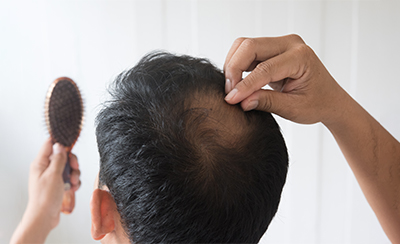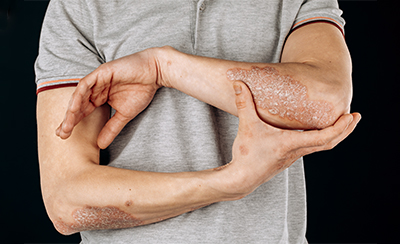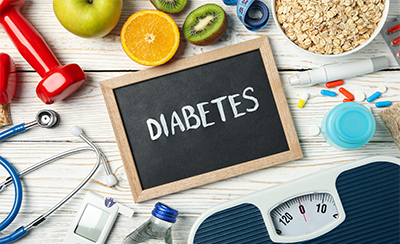Acute diseases are the result of rapid and morbid derangement of the vital force. They commence suddenly, have definite course of action and terminate within a short time either leading to complete recovery or resulting in death of the patient.
Acute diseases can be classified into four types:
Individual diseases: These acute diseases attack people individually. The cause can be due to eating unhealthy food, change in eating habits, exposure to extremes of weather, stress, mental emotions.
Sporadic diseases: These acute diseases attack several persons at same time due to the climatic influences and injurious agents. In this case the vital force is morbidly deranged in few persons at one particular time.
Epidemic diseases: Here many peoplesuffer from similar sufferings likely due to the same cause. Poor sanitation, natural calamities like earthquakes or famines or floods, and wars can lead to epidemic disease outbursts like typhoid, cholera, dysentery etc.
Endemic diseases: Here the diseases continuously prevail in a community all the time attacking many persons with similar sufferings from the same cause. These diseases are usually infectious.
Many a times, the person develops a natural disliking and aversion to food as he or she develops a bad taste in mouth. Add to it the generalised weakness and upset stomach, it is imperative that diet in acute disease becomes very important to manage to restore them back to health. In acute diseases of physical causes, the patient should get foods which he urgently desires. So in acute disease meals should be planned and given as per the choice and liking of the patient, and as suitable for his disease condition.
Diet plan in acute diseases helps:
- To maintain nutritional status
- To restore nutritional status
- To correct nutritional status
- To maintain adequate weight
- To balance amounts of carbohydrates, fat and protein
- To provide a greater amount of a nutrient such as protein or decrease the amount of a nutrient such as sodium (as required and applicable for specific diseases)
Many a times, early nutrition intervention is crucial to avoid poor outcomes including malnutrition, persistent diarrhea and death in acute diseases. Controversy still exists as to what types of foods are best indicated during the acute illness, as well as which foods will provide sufficient calories, easily absorbable nutrients, are palatable and are of low cost. Due to electrolyte and water loss during diarrhea, dietary plans are advised that are always accompanied by an oral rehydration therapy (ORT). ORT not only effectively treats but also prevents dehydration in children and adults with diarrhea.The role of dietary fiber in diarrhea has been proposed to reduce the frequency of liquid stools. Banana is rich in amylase-resistant starch, which is thought to improve symptoms of non-ulcer dyspepsia and peptic ulcer in humans.
The diet plan in patients suffering from dengue plays a very prominent part in their recovery. Diet for dengue should include more of easily digestible foodslikedboiled green vegetables and fruits like apple and banana. Lots of fluids should be consumedto prevent dehydration from fever, lack of oral intake, or vomiting. E.g fresh juices, soups, coconut water, ORT. Vitamin C acts as a natural cure for dengue fever as it promotes antibodies for faster healing and recovery e.gamlaand orange juice. Papaya juice is known to increase the platelet count and is beneficial. Other food that can be consumed are pomegranate juice or black grape juice, green leafy vegetables (boiled), cod liver oil, flaxseed oil, and fresh fruits.It is also important to know what NOT to eat and they are – spicy food, foods with saturated fats;fried, processed and junk foods; sugary and aerated drinks, raw vegetable.
When one thinks of monsoons, the thought of Malaria and fever is not far behind. There is no specific diet to treat malaria, however, one needs to ensure adequate nutrition to help strengthen the immunity to fight the disease. A diet for malaria should focus on boosting the immune system without causing harm to other organs like the kidney, liver or the digestive system. It is suggested that a patient with malaria should consume smaller meals throughout the day. The diet should include nutritious foods, glucose water, fresh fruit juices, coconut water, and electoral water. A high carbohydrate and high protein diet is very helpful as the body can utilize the protein for anabolic and tissue repair and building process. Eating curd, lassi, and buttermilk is highly beneficial.Using excessive fats or eating fried foods can increase the risk of nausea, indigestion, and loose bowels and hence should be consumed in moderation or best avoided. Drinking soups or fruit juices or coconut water etc. is beneficial. Vitamin C and A rich foods such as papaya, beetroots, and other citrus foods etc. are important for a malaria patient.
Similarly, a patient with hepatitis would do well if he/she follows a healthy, well-balanced diet. This diet should include plenty of fruits and vegetables, whole grains such as oats, brown rice, barley, and quinoa, lean protein such as fish, skinless chicken, egg whites, and beans; and Low-fat or non-fat dairy products or healthy fats like those in nuts, avocados, and olive oil. The following should be avoided- Saturated fats and high-fat dairy foods, fried foods, sugary treats, foods heavily laced with salt, and alcohol.
As a general precaution, it is always advised to wash all meats, fruits, and vegetables to remove any potentially harmful residues, and wash hands thoroughly before and after handling food to prevent cross-contamination, and not consume raw or outside food.
There are chances to get an asthmatic attack due to change in climatic conditions. Allergic asthma is one of the most common types of asthma. One of the cause to get skin allergies or asthma is allergy to food. Food allergies are due to an abnormal immune response to anotherwise harmless food.The most common food allergens are egg, milk, soy, peanuts, wheat, and shellfish etc.Foods implicated with allergies should be strictly eliminated from the diet.Appropriate substitutions should be made to ensure that the nutrition requirement is met.







